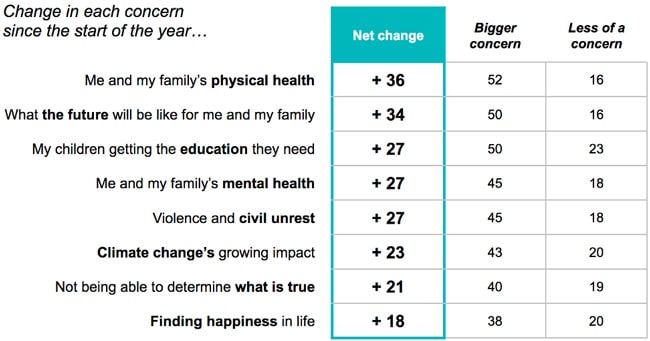New research shows that consumers are evaluating brands differently in the pandemic
- Respondents in eight markets say they are now much more attracted to brands they can trust, that make them feel safe and supported, and that clearly care about people first and foremost
- Many will try a new brand if it is responding especially well in the pandemic
- Educators who deliver value for money, prove that they can be trusted, and support students through this difficult time will gain a competitive advantage that will stretch beyond the pandemic
A new Edelman Trust Barometer report, Brands Amidst Crisis, finds that the pandemic has shifted what consumers value and that this is affecting their response to brands. The research, while general in focus, contains important ideas for educators and agents thinking about how best to nurture their relationships with current and prospective students.
The survey for the report was conducted through October 2020 in eight markets: Brazil, Canada, China, France, Germany, India, the UK, and the US. At least 1,000 people responded to the survey in each market, for a total sample of more than 8,000. Edelman has also been able to track consumer sentiment based on other surveys they have conducted throughout the year.
All eyes are on brands’ behaviour
The report emphasises that global consumers are becoming more intent on buying brands they believe are responding well to the pandemic – and that a significant proportion will try out a new brand specifically because it is performing well on this measure. Nearly half (44%) have started using a new brand “because of the innovative or compassionate way they have responded to the virus,” up 7% between April 2020 and June 2020 alone.
This willingness to try a new brand is a key finding for educators interested in developing new markets and market segments. It suggests that students, as consumers of education, may consider a wider range of destinations, institutions, and even types of credential than they would have pre-pandemic. This idea becomes still more compelling when we look at the proportions of respondents who are changing the way they evaluate brands.
The survey found that pandemic-related fear has increased consumers’ need for brands to be concerned with their safety, their budget, and the community at large. Since the beginning of the crisis, respondents have become more likely to say it is important that brands put consumer safety first (+31%), provide value for money (+32%), and put people before profits (+26%). More superficial values are less important than they were before the pandemic; respondents have become less likely to care about purchasing a brand that communicates that they are successful (-11%) or that makes them look like a trendsetter (-9%).
What “value for money” means today
Educators who are able to communicate – and truly deliver – quality education that delivers value for money now have more of a competitive advantage than ever; 90% of respondents picked “value for money” as the most important brand attribute and 39% said that this quality was a “critical deal breaker.”
It’s interesting as well to consider what value for money means right now. Already, in the past two years, we have seen a growing body of research finding that students want education that directly helps them in their careers. A quickly increasing number of students are gravitating towards microcredentials, shorter degrees and certificates, and degrees that include practical applications and internships. The fact that many microcredentials are delivered online has made these qualifications particularly relevant this year because remote learning is currently the only option for hundreds of thousands of students around the world.
The need for career-oriented education is particularly acute given the massive economic disruption and job losses that COVID-19 has caused. Looking at the following chart, you can see that unsurprisingly, respondents have become much more concerned about their family’s physical health this year – but that two other concerns have become nearly as crucial: “What the future will hold for me and my family” and “My children getting the education they need.”

The findings show that education, unlike many other products and services this year, is considered essential. But in a time of profound anxiety and uncertainty, parents and students are looking at their investment in education in a whole new way.
Trust is crucial right now
Trust emerged as paramount in the survey as a motivation for purchase; it has become 28% more important to respondents across the global sample since the start of the year and 88% now consider it important or even critical. Building trust requires communicating consistently, accurately, and in a way that makes parents and students feel truly cared for.
To that last point about care: there are unfortunately many media reports and surveys pointing to international students feeling unsupported by their host countries or institutions amidst COVID. But at the same time, there are also beautiful stories circulating about institutions going above and beyond for their students.
To take one example, a recent letter of thanks written by international students studying at The College of Europe to their vice-rector attests to how greatly appreciated and important extra steps by institutions are in the pandemic. You can read it in full here and the screen shot below is one of the postcards the students sent in addition to the letter.
The students who feel well supported by their institutions in COVID will never forget it and are poised to be incredibly strong brand advocates and devoted alumni.

Supporting students in every way possible
As the Edelman report notes, “Brands must recognise that consumers are now living inside out, with a world that starts at home, with top concerns now personal health and family instead of image or status.” Whether on campus or studying remotely, international students have faced the sense of isolation that virtually all people have in COVID – but often to an exponential degree.
For students who have remained in their host countries, language barriers can feel even more daunting, homesickness might be particularly acute, worries about family abroad might be overwhelming, and COVID-related financial hardships can make everything even more upsetting. Students have had to deal with uncertainties around their visa status, graduation options, and post-study work opportunities. They may have had accommodation challenges in those cases where student housing was shut down. Too many have even wondered if they were even welcome in their host countries anymore, and some have deliberated about whether they should return home (and if they even could due to travel restrictions). Those students also faced the uncertainty of not knowing if they could eventually return to their institutions due to border restrictions.
Many international students who are studying remotely have faced their own challenges, including insufficient technology access, challenging home set-ups for learning, time zone hassles, feeling disconnected from their campus and classmates, and feeling worried about keeping up with academics or graduating.
For all these reasons, supporting international students has never been more important. It is crucial, and if it’s not done well, institutions will be hard-pressed to recruit new international students from various markets given almost certain negative word-of-mouth.
If we look back to that chart earlier in the article, the fact that respondents became 27% more concerned about their and their family’s mental health is a key takeaway. Figuring out ways of supporting international students’ mental health is a vital area of institutional operations right now. Setting up virtual support spaces for remote learners is one way and it can be especially important in countries where there is a stigma attached to mental health and going for help or where it’s not convenient or affordable to do so.
Quality education with a human touch
For educators of international students, this is a hugely challenging time, especially if financial pressures are mounting. But if an investment in an internationalised campus is to continue paying off through the pandemic and after it, educators must ensure that international students continue to feel they are receiving quality education that will deliver a return on investment. At this time, as the Edelman research findings suggest, providing a good learning experience for students should be focused on helping to calm uncertainty, making students feel safe and supported, and assuring them that their perseverance in their studies (whether online or on campus) will be worth it in the end.
For additional background, please see:
















